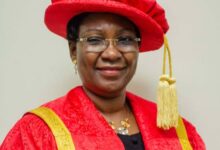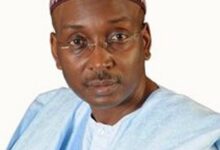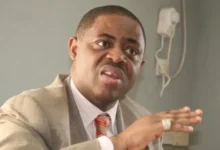Ibadan and a significant, historic assemblage of techies, By Omoniyi Ibietan

By 1960, the city of Ibadan had grown from a collection of settlements to become Nigeria’s most multicultural city but not before it became a garrison, being originally birthed by dissident soldiers escaping a rampaging 19th Century Yoruba Wars and determined to build a fort that is impregnable.
Like New York, it would become a dwelling place for notable culture architects, pure literati, dedicated educationists, the avant-garde and by that very fact non-conformists. According to a journalistic historian, “there was nowhere in Africa that matched Ibadan’s assemblage of fire.”
Indeed, it is so easy to recall the constellation of forces that made Ibadan the bastion of Nigeria’s best ideologues: Anthony Enahoro, Christopher Okigbo, JP Clark, Chinua Achebe, Wole Soyinka, Akin Mabogunje, Emeka Anyaoku. You can keep naming them, up to SG Ikoku, the inimitable petrel who defeated his own notable father, Alvan Ikoku, in an Eastern Regional Assembly election. SG Ikoku would become instrumental to Awolowo’s brand of socialism, right at the heart of Ibadan.
So, all of them were at Ibadan for one reason or the other connected to ambition, patriotism, and profound vision, including Nigeria’s most misunderstood hero, Emmanuel Ifeajuna, a rare, almost irreplaceable orator, who was Director of Information of the University College Ibadan Students Union. Ifeajuna won Nigeria’s first gold medal at an international game when he set a new record in High Jump in Vancouver in 1954 Commonwealth Games. He was just 20 years old. He later became an officer in the Nigerian army following his commissioned after graduating from Ibadan. I will stop here on Ifeajuna. God willing, I will tell his story in future alongside that of General Alexander Madiebo, Nigeria’s equivalent of America’s Colin Powell.
So, let me totalise by noting that Ibadan remains the birthplace of many histories of Nigeria, including the Constitutional Conference of 1950 where leaders from the Eastern, Northern, and Western Regions drafted the Constitution that would later be called Macpherson Constitution. As I had indicated in my book (to be released January, 2023), the McPherson Constitution introduced the most concrete changes in the administration and governance of Nigeria.
Now to the brass tack. Today marks another significant, perhaps historic moment in the anals of Ibadan as stakeholders in ICT sector begin to arrive the political, cultural and educationally famed city for the week-long National Council on Communications and Digital Economy (NCCDE) General Meeting convened at the instance of the Minister of Communications and Digital Economy, Prof. Isa Ali Ibrahim (Pantami) who superintend the sector.
Besides Minister Pantami, my boss, the Executive Vice Chairman and Chief Executive Officer (EVC/CEO) of the Nigerian Communications Commission (NCC), Prof. Umar Danbatta, and a galaxy of stakeholders in the communications and digital economy sector are expected at the University of Ibadan’s Conference Centre, venue of the Council Meeting, which by my reckoning, is taking place on a campus for the first time.
The Annual General Meeting of the NCCDE, now in its 10th Edition, is the highest advisory body to the government on digital economy policies, programmes, and strategies. This meeting is expected to review actions taken by members in implementing the decisions of the 9th NCCE meeting and strategise towards fast tracking the development of Nigeria’s digital economy agenda.
Members of the Council, led by the Honourable Minister of Communications and Digital Economy, include all Honourable Commissioners overseeing ICTs and the digital economy portfolio in all the States of the Federation, and all CEOs of agencies in the Federal Ministry of Communications and Digital Economy. All these dignitaries and all other stakeholders and enthusiasts of ICTs, telecommunications and attendant technological entrepreneurship, are expected at Ibadan, to submit memoranda for the consideration of the Council, whose meeting this year is focused on, “Digital Innovation and Entrepreneurship as a Panacea for Challenges to Sustainable Economic Development in Nigeria”.
In the last few years, the communications and digital economy sector in Nigeria has witnessed remarkable transformation, beginning with the rechristening of the Federal Ministry of Communications Technology as the Federal Ministry of Communications and Digital Economy by President Muhammadu Buhari, in October 2019.
In November 2019, Mr. President also unveiled Federal Government policy direction for the sector when he presented the National Digital Economy Policy and Strategy (NDEPS) 2020-2030, at the e-Nigeria Conference which took place at the International Conference Centre in Abuja.
The Policy is pivoted on eight pillars as follows: Developmental Regulation; Digital Literacy and Skills; Solid Infrastructure; Service Infrastructure; Digital Services Development and Promotion; Soft Infrastructure; Digital Society and Emerging Technologies; Indigenous Content Development and Adoption.
As a natural follow up to the launch of NDEPS, President Buhari also presented the Nigerian National Broadband Policy (NNBP) 2020-2025 in March 2020, to enhance expansion and improvement in broadband infrastructure. The National Broadband Implementation Committee, headed by NCC’s Executive Commissioner, Technical Services, Engr. Ubale Maska, is headquartered at the NCC.
As I write, the national broadband coverage was 45.09 percent as of September 2022, up from less than 10 percent in 2015. Suffice it to say, that the communications and digital economy sector has witnessed the design and implementation of several other policies, including the National Policy on Fifth Generation (5G) Networks for Nigeria’s Digital Economy being driven by the NCC; and the National Policy for the Promotion of Indigenous Content in the Nigerian Telecommunications Sector, which led to the establishment of the Nigeria Office for Developing the Indigenous Telecom Sector (NODITS) also domiciled in NCC.
It is a gratifying honour to be part of the delegation from NCC attending the 2022 NCCDE.
-Ibietan is Head of Media of Nigerian Communication Commission




